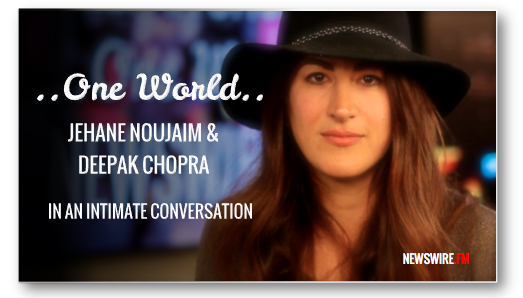With her unusual background and upbringing between the United States and the Middle East, Jehane Noujaim has a unique vantage point from which to film the stories of the Arab Spring. In her newest Oscar nominated documentary The Square Noujaim follows a number of Egyptians through the ongoing Egyptian Revolution.
The organic way in which the film's crew came together is one of the many unique twists that makes Noujaim's brand of storytelling particularly engaging and insightful. The team met in Tahrir Square as the protests began; all brought there by a similar desire to witness history and then to share what was happening with the world. The danger to herself and the crew was very real and they were arrested on several occasions but the importance of sharing this story was larger than the fear of arrest.
In discussing her film, Noujaim speaks with a frankness of one who has a genuine passion for the story she is telling. The daughter of an American mother and an Egyptian father, she felt a deep connection to the people and to the story. "I grew up ten minutes away from Tahrir so I felt I had no choice but to be there," she explains in her interview with Deepak Chopra.
Jehane Noujaim set out not to tell the story of the victors, who can hardly be named as the revolution is still ongoing, but rather to explore the reasons the Egyptian people were protesting. She wanted to explore what is it like when you feel like you've lost. In the moments of hopelessness what keeps a revolutionary going? Those are the critical moments, the world should know what makes those people come back the next day and continue fighting for what they believe in.
When exploring issues of war and revolution there is always a tendency to place blame, either with a dictatorial leader, with a fundamentalist rebellion or with an overzealous military. Noujaim shies away from such bold pronouncements. The only conclusion that she can come to about the ongoing struggles in Egypt is that all of these actors are merely symptoms of the larger issue. They are symptoms of a system that has a lack of consciousness and an inability to protect all Egyptians equally.
Despite this disheartening reality, she maintains a deep seeded optimism that she credits to the people she was able to follow in her film and others that she had the opportunity to meet during the five years she spent filming in Tahrir Square. Their conviction is clear, they want a better life for themselves, their children and for the people of Egypt. Noujaim's mission is to present the stories of these real people engaging in a struggle that is larger than themselves and working to create positive change. For Jehane Noujaim, this is the story of the Egyptian Revolution and this is the story that demands telling.
This is a blog series produced in partnership with One World, a video series with Deepak Chopra and NEWSWIRE.FM. To view the full video and subscribe to all the episodes click here:
